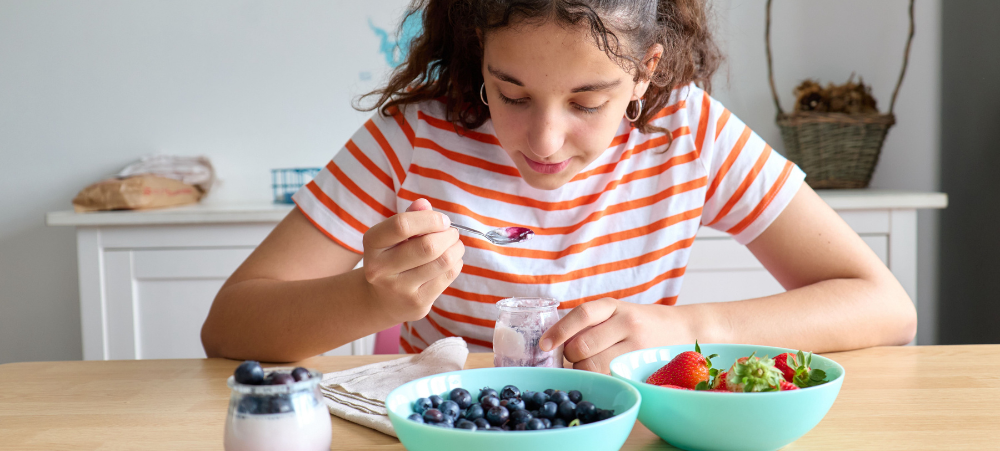As teens face the challenges of growing up, their mental health often becomes a concern for parents, teachers, and caregivers. With the pressures of school, relationships, and societal expectations, mental health issues among teenagers are becoming increasingly common. According to the World Health Organisation (WHO), half of all mental health conditions begin by the age of 14, making it crucial for parents and caregivers to be proactive in recognising signs of mental distress and offering appropriate support.
In this article, we’ll explore how to recognise the signs of mental health issues in teens and how to offer the right kind of support.
1. Recognising the Signs of Mental Health Issues in Teens
Teens go through significant physical, emotional, and social changes, which can sometimes manifest as mood swings or behavioural changes. However, there are some red flags to watch for that could indicate underlying mental health struggles.
Common Signs of Mental Health Struggles:
- Persistent Sadness or Depression: If a teen experiences prolonged sadness, hopelessness, or a lack of interest in things they once enjoyed, it could be a sign of depression.
- Changes in Sleep Patterns: Difficulty falling asleep, frequent waking during the night, or sleeping excessively can indicate a range of mental health concerns.
- Withdrawal from Social Interaction: A teen who isolates themselves, avoids friends or family, or loses interest in activities they once enjoyed might be struggling with anxiety, depression, or other mental health challenges.
- Difficulty Concentrating or Declining Academic Performance: Struggles to focus on schoolwork or a noticeable decline in grades can be indicative of mental health issues like depression, anxiety, or ADHD.
- Increased Irritability or Anger: Teens may lash out more frequently when dealing with stress, anxiety, or depression. Sudden mood swings or angry outbursts are worth noting.
- Changes in Eating or Weight: Significant weight loss, weight gain, or changes in eating habits can signal mental health concerns like eating disorders or depression.
- Physical Symptoms: Teens may complain of unexplained physical issues such as headaches, stomach aches, or fatigue, which often accompany mental health problems like anxiety and depression.
- Risky Behaviours: Engaging in reckless behaviours such as substance use, unsafe driving, or unprotected sex may be a way for teens to cope with stress or emotional pain.
Why It Matters
Identifying these signs early allows you to offer support before the situation escalates. Mental health struggles can significantly impact a teen’s daily life, relationships, and future. Addressing them early can help prevent more serious mental health issues in adulthood.
2. What Contributes to Teen Mental Health Issues?
Teenagers face a variety of stressors that can contribute to mental health struggles. Some common contributing factors include:
- Academic Stress: Pressure to perform well in school and prepare for college or future careers can be overwhelming.
- Social Pressures: Peer relationships, bullying, social media, and the desire to fit in can cause anxiety and depression.
- Family Dynamics: Family conflict, divorce, or financial stress can deeply affect a teen’s emotional well-being.
- Trauma or Abuse: Teens who have experienced trauma, abuse, or loss are at higher risk for developing mental health conditions.
- Genetics and Biology: Family history and genetics can play a role in whether a teen is more susceptible to mental health conditions like depression or anxiety.
- Hormonal Changes: The hormonal fluctuations during puberty can affect mood and emotional regulation.
3. How to Offer Support
If you notice signs that your teen may be struggling with their mental health, it’s important to offer support in a way that encourages openness and trust. Here’s how you can help:
Open a Conversation:
Approach your teen with empathy and a nonjudgmental attitude. Let them know you’ve noticed some changes and express concern. Instead of pushing them to talk, let them know you’re there when they’re ready.
Tip: Use “I” statements to avoid sounding accusatory, like, “I’ve noticed you’ve been really quiet lately. How are you feeling?”
Listen Actively:
It’s essential to listen without interrupting or offering immediate solutions. Validate their feelings and let them know it’s okay to not have everything figured out.
Tip: Avoid minimising their emotions by saying things like “It’s not a big deal” or “You’ll get over it.” Instead, reassure them that their feelings are valid.
Encourage Healthy Coping Mechanisms:
Support your teen in finding positive outlets for stress and anxiety. Encourage physical activities, hobbies, or creative pursuits that help them relax and express themselves.
Tip: Help them engage in activities that promote mental well-being, such as exercise, journaling, or meditation.
Seek Professional Help:
If your teen’s struggles persist or worsen, it may be time to consult a mental health professional. Therapy or counselling can provide them with tools to manage stress, anxiety, and depression.
Tip: Be supportive of the process and let your teen know that seeking help is a sign of strength, not weakness. A therapist can offer them coping skills and a safe space to express their feelings.
Monitor Their Online Activity:
Since social media can significantly impact a teen’s mental health, it’s important to monitor their usage and encourage healthy boundaries. Talk to your teen about the pressures and risks of social media, and promote open conversations about their online experiences.
Tip: Set limits on screen time and encourage offline activities that foster real-world connections.
Create a Safe Environment:
Create a home environment that feels safe and supportive. Encourage open communication, respect their privacy, and be consistent with boundaries to help them feel grounded.
4. When to Seek Immediate Help
While many mental health issues can be managed with the right support, there are times when immediate professional intervention is needed. Seek immediate help if your teen is:
- Expressing thoughts of self-harm or suicide
- Engaging in self-destructive behaviours
- Exhibiting extreme mood swings or irrational behaviour
- Experiencing a significant change in personality or behaviour
In these situations, contact a mental health professional or crisis helpline immediately. In South Africa, the Suicide Crisis Helpline is available at 0800 567 567, and the South African Depression and Anxiety Group (SADAG) offers support at 0800 21 22 23.
Conclusion
Teen mental health is a critical issue that requires the attention and understanding of parents and caregivers. Recognising the signs of mental health struggles early can make a significant difference in helping your teen navigate the challenges of adolescence. By offering support, encouraging open communication, and seeking professional help when needed, you can play a vital role in your teen’s mental well-being. Remember, it’s important to stay involved, stay compassionate, and let your teen know they are never alone.
Sources:
- American Academy of Child & Adolescent Psychiatry (AACAP) – https://www.aacap.org/
- National Institute of Mental Health (NIMH) – https://www.nimh.nih.gov/
- Child Mind Institute: Supporting Teen Mental Health – https://childmind.org/article/teen-mental-health/
- SADAG – South African Depression and Anxiety Group – https://www.sadag.org/
We understand that there are many aspects that encompass a Mother, Father or Child and strive toward providing resources and services that accommodates this.
Our content is aimed to inform and educate families on issues starting from pregnancy through to the challenges of the teen-age years.
- Say Hello to the Ultimate Holiday Brunch Bite - December 17, 2025
- Tiny Toons Looniversity Returns: Meet the Voice Behind Plucky and Hamton! - December 12, 2025
- From Pain to Possibility: Panado®’s New Marketing Campaign, Highlights The Joy Of Pain Relief - December 10, 2025





